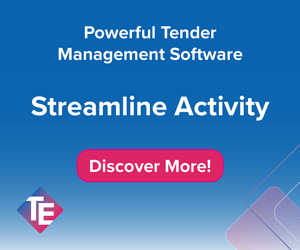One of the best ways to ensure the effectiveness of your work-winning team is to give them the means to engage with professional development opportunities and to access peers who have experienced — and conquered — common challenges. Being able to learn best practices and implement them across the organization, while facilitating one’s own career growth, only adds to this team success and can be easy to organize through APMP’s corporate membership.
This membership option comes with numerous benefits, but the most impactful one might be how it demonstrates your commitment to the professional development and growth of your team.
“I made the decision to participate in the corporate membership so I could be an advocate within our organization — an internal champion,” says Jamie Ninneman, CPP APMP, senior director of customer success and advocacy and global sales operations at SAP. “Through this one membership, I can support the unique professional development needs of a wide variety of individuals.”
For Angela Adam, CF APMP, regional proposal manager at Michael Baker International, the administrative and operational benefits influenced their decision to move to a corporate membership. “We considered [this] option when we recognized that we were already participating in many of the components that membership offers and that it would give us discounted pricing for those components. Additionally, the APMP corporate membership offers a team of our size the ability to manage membership dues more economically. We also retain our membership seats within the company, a financial advantage in the event of staff transitions.”
The ability to reinforce best practices and secure a consistent level of expertise across the work-winning function is another advantage. Kathleen Rogers, CF APMP, bids and tender manager at Konica Minolta, says, “We are now the approved and go-to knowledge base for the business, and we use this status to help educate the wider business. As a result, we have seen an increase in our win rate, which I would like to attribute to our newfound knowledge and confidence in how we respond to tenders. We have been able to access training via the membership and have seen some excellent tools, and directly implemented change because of this.”
Certification is a crucial piece of building this common expertise and one of the most valuable APMP benefits. Ninneman says that if anyone on his team wants to become certified or achieve the next level of certification, as long as they commit to do it within a certain time frame, he will pay for it. “I see it as an investment for the company, as well as an investment for the individual,” he says. “They’re driving professional growth and, as a result, they’re bringing intrinsic skills to the organization.”
Krystle Volcy, Esq., CP APMP, a proposal writer at The GEO Group, Inc., agrees. “APMP certification has elevated the knowledge of our team, it has elevated their status in their roles, and it has promoted compliance to best practices.”
In addition to accreditation, corporate membership provides discounted rates for APMP’s educational programs and conferences and offers opportunities to learn from and connect with folks from around the world — or even just around the corner. From webinars and chapter events to Bid & Proposal Con in the United States (this year, BPC Global) and in Europe, APMP members can gain industry insights through a variety of channels.
“Our team participates in the webinars to bolster their knowledge and maintain their CEUs needed to retain their certification,” Adam says. “We also send multiple team members to BPC each year, while others attend chapter-organized regional conferences. The connection to a community of like-minded proposal professionals has been invigorating for our group.”
For Tom Silence, CP APMP, global bid manager at Canon Global Services, the establishment of an EMEA “Bid Community,” thanks, in part, to corporate membership, has allowed his peer group to stay abreast of what’s important at work and within the association.
“The community meets remotely on a regular basis and once a year in-person to discuss key topics in the bidding world, tips that are being used across the community and win stories or lessons learned,” he explains. “[A valuable part of this is] the APMP webinars. They provide us a platform for discussion on how we can improve our current processes and ways of working. We discuss these improvements on our quarterly EMEA Bid Community calls. By watching these webinars, it allows us to ensure that our bid process is continually kept up with innovation and best practice.”
This camaraderie and knowledge sharing, joined with the many other benefits of corporate membership, has translated into meaningful results for Silence and his colleagues. He says, “Our work-winning goals have been improved through APMP, specifically in our more established bid teams. All bid teams follow APMP practice in bidding less and winning more, focusing on opportunities that we have a higher chance of winning. Because of this, our teams have introduced ideas that benefit their work.”
Some of these initiatives, he says, include:
- Carrying out proactive proposals to avoid customers going to RFP and offering direct awards.
- Mid-term bid pipelines to allow teams to prepare and try to influence opportunities.
- Qualifying all opportunities that require the bid teams to work on them.
- Increasing the no-bid rate, allowing their teams to focus on the opportunities that they have a higher chance of winning.
Volcy adds that for her team, membership has led to “stricter compliance to APMP [industry standards] as it relates to executive summaries, graphics, project management, roles and more. This governance has allowed us to defend our rationale for our process as it relates to design, structure, formatting, graphics, compliance matrix, etc.”
One of the keys to successfully maximizing APMP corporate membership, according to Ninneman, is to consider it from a central, more strategic standpoint.
“We’ve seen significant benefits in engaging within the association across all [member] organizations — large and small — gaining that knowledge of who’s doing what, how they’re doing it and understanding where the industry is going,” he says. “This has helped us make better business decisions and given us actionable insight to take into our strategic decision making. If you treat corporate membership like a strategic program, you can drive strategic results.”
Frances Moffett is the managing editor at APMP.



Join the Conversation